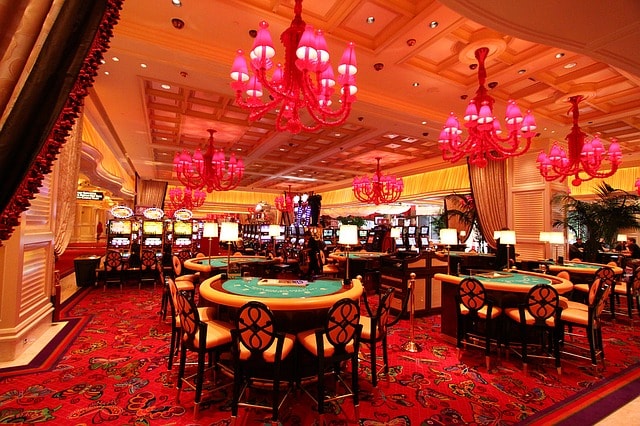
When we think of gambling activities, the initial images that often cross our minds are those of spinning roulette devices, poker tokens clattering on felt surfaces, and dice flying across a betting surface. While many consider these activities as mere pastimes fueled by luck, a deeper exploration reveals a fascinating blend of tactics, expertise, and social interaction that raises them well beyond basic luck. Whether you are a experienced player or a inquisitive newcomer, understanding the nuances of these activities can greatly enhance your enjoyment and appreciation.
Casino activities have evolved over hundreds of years, with different cultures contributing to their diverse histories and different forms. From the intricate tactics of 21 to the bluffing methods in card games, players engage in a battle of intellect as much as a risk on numbers. This dynamic interplay between chance and skill creates a thrilling atmosphere that draws millions to casinos worldwide. Goal123 As we explore the world of table activities, we will uncover the methods that can tilt the odds in your favor and the community elements that make these games a popular choice for entertainment and interaction.
The Approach Behind Table Games
Casino games frequently involve a blend of ability and chance, which makes them intriguing for players who enjoy a challenge. Every game has their own set of guidelines and strategies that can affect the results. For instance, in games like blackjack, participants are required to use tactics like card counting and grasping the odds to make informed decisions. This expertise can greatly improve their victory potential, distinguishing seasoned participants from novices who may depend entirely on luck.
In contrast, games such as roulette may appear to be entirely based on chance, but strategic thinking can also come into play. Players can select between various betting strategies, such as the Martingale strategy, where they increase the wagers after a loss. This approach can establish a more methodical approach to the activity. Understanding the odds of specific wagers can also assist participants make better decisions on the table, showcasing that even games of luck, strategy can enhance the enjoyment.
Additionally, poker is notable as a game that strongly emphasizes strategy. In contrast to most casino titles, poker combines skill, mental acuity, and luck. Players must not only concentrate on the hands they are given but also take into account their rivals’ behavior and wagering patterns. Mastering principles like table position, the odds of the pot, and interpreting bluffing is crucial for success. This complexity of tactics in poker often leads to a more engaging experience for players, where their decisions and abilities greatly affect the game’s results.
Understanding Likelihood and Ratios
In the realm of casino matches, likelihood and ratios hold a critical role in deciding a player’s possible consequences. Every game has its own set of principles that dictate how the probability of winning or failing is calculated. For case, in matches like 21, players have a chance to modify their ratios through planning, whereas in matches like the wheel, the results are purely governed by luck. Grasping how these probabilities are measured can significantly impact how a player approaches the match.
Ratios are typically shown in two formats: ratio and decimal. Ratio odds indicate the proportion of the amount won to the amount bet, whereas numeric ratios show the total payout for a successful wager, which includes the stake. For example, if a match has ratios of 5 to 1, this means that for every one dollar staked, a player could win five dollars if successful. Learning how to read these ratios allows players to evaluate their potential earnings and make more educated choices during play.
Players should also be aware of the casino advantage, which is the casino’s built-in advantage over the gamblers. Each game has a different advantage, and comprehending this concept is crucial for managing one’s expectations and budget. Activities with a reduced advantage, such as blackjack and baccarat, typically offer superior ratios for players compared to games like slot machines and lottery. By understanding the connection between probability, ratios, and the casino advantage, gamblers can improve their gambling experience and strategize more effectively.
The Social Aspect of Table Gaming
Table games at gaming establishments are often seen as a hub of social interaction, bringing players together in a collective experience that goes far past the mere act of gambling. The atmosphere at a poker table can be vibrant, with gamblers engaging not only with the game itself but also with each other. Laughter, excitement, and, sometimes, friendly banter create connections that improve the overall enjoyment of the gaming experience. This communal aspect can turn a solitary endeavor into a dynamic gathering, making table games particularly enticing.
One of the fascinating elements of gaming at tables is the way it cultivates friendship among participants. Whether it’s collaborating to defeat the dealer at a dice table or sharing stories between hands in a poker game, the environment encourages communication. Players often share advice or strategies, creating a sense of community that boosts the fun. This interpersonal atmosphere can make new gamblers feel welcomed and less daunted by the competitive nature of casino games. As the game progresses, friendships may form, leading to a sense of belonging that keeps players coming back to the table.
Moreover, the social aspect of table gaming extends outside just the participants. Dealers play a crucial role in encouraging interaction and maintaining the flow of the game. Their ability to engage gamblers with warm dialogue and their expertise in running the table can create an welcoming atmosphere. This connection between players and dealers adds another layer of enjoyment, where players feel connected not only to each other but also to the staff. Such interactions are often what make the experience unforgettable, as players leave with tales to tell and connections made, reinforcing the notion that gaming at tables are truly about something greater than luck.
